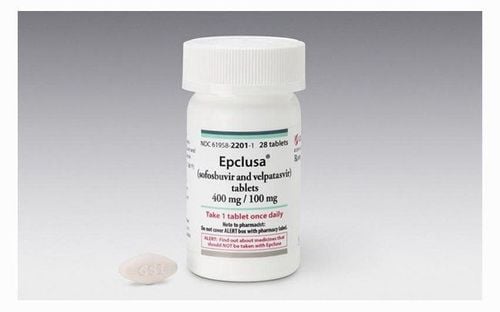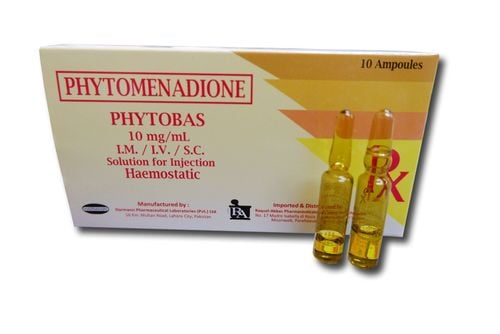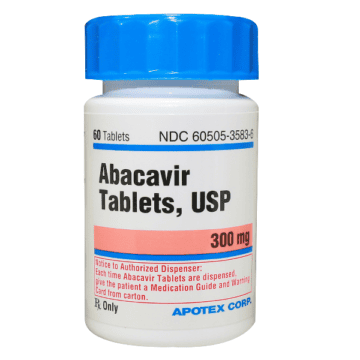This is an automatically translated article.
Children's liver is inherently very immature, while liver disease in children has not yet received adequate attention from parents. Therefore, when the disease is detected, the child with chronic liver disease has entered the stage of complications. Therefore, it is extremely necessary to learn and implement measures to prevent liver disease in children, starting with children's meals and daily activities.
1. What is liver disease in children?
The liver is an important organ, responsible for helping the body digest food, metabolize and remove harmful substances. When the liver is severely damaged, this is a condition that can lead to acute or chronic liver disease or liver failure with potentially life-threatening complications.
People often think that liver disease is only seen in adults, but in reality, liver disease is increasing the incidence in children, delaying the development of children as well as burdening the cost of treatment for the elderly. family and country.
For example, non-alcoholic fatty liver disease has become the most common cause of chronic liver disease in children and adolescents in Western and developing countries as the physical life has become is enhanced. The greater the number of children with obesity, not only a risk factor for liver disease in particular but also for other metabolic diseases in general.
In addition, there are other liver diseases in children that also need to be detected early and treated thoroughly before causing chronic liver damage:
Hepatitis B Hepatitis C Hepatitis Autoimmune Hepatitis Cirrhosis Congenital Inherited liver disease such as glycogen storage disease, Wilson's disease, Alpha1-antitrypsin deficiency, cystic fibrosis... Congenital biliary disease Congenital biliary tract cysts Gastroenteritis Drugs and toxins such as isoniazid, methotrexate, excess vitamin A
Trắc nghiệm: Làm thế nào để bảo vệ lá gan khỏe mạnh?
Làm test trắc nghiệm kiểm tra hiểu biết về gan có thể giúp bạn nhận thức rõ vai trò quan trọng của gan, từ đó có các biện pháp bảo vệ gan để phòng ngừa bệnh tật.2. What are the possible complications in children with chronic liver disease?
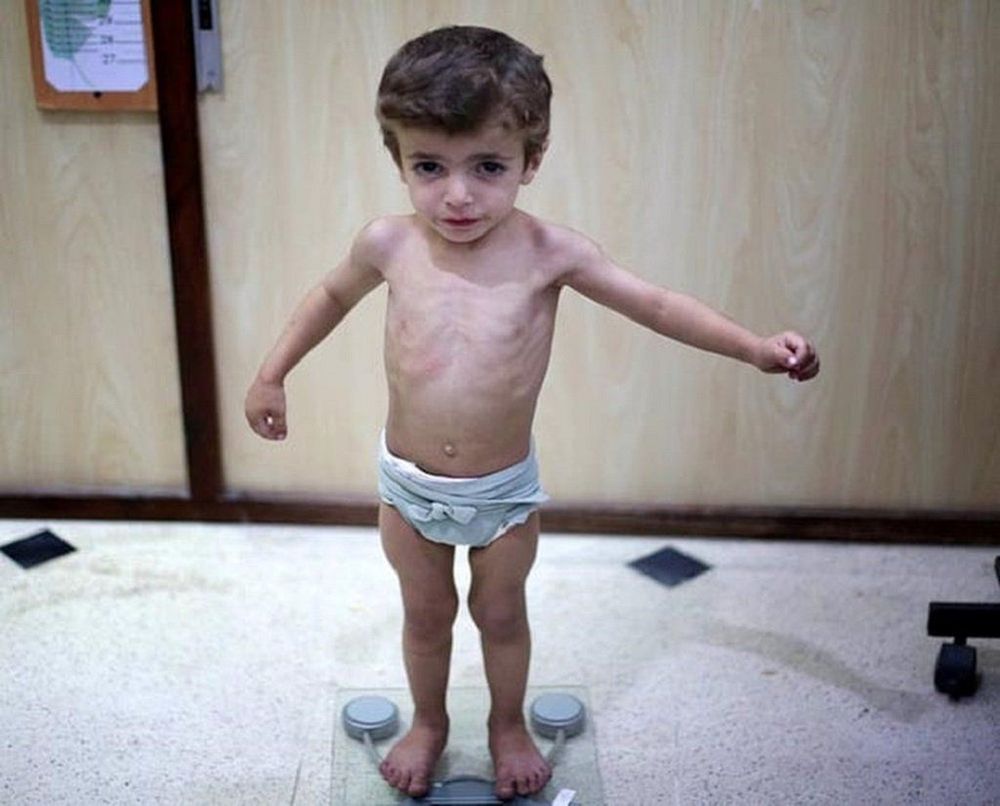
Trẻ bị bệnh gan mãn tính thường bị suy dinh dưỡng do gan to có thể gân đau bụng hoặc cảm giác no
Liver diseases in children that damage the liver parenchyma for a long time can cause the following complications:
Hepatic encephalopathy : decreased brain function due to the accumulation of toxic substances in the blood Jaundice: discoloration yellowing of the skin and whites of the baby's eyes due to abnormally high levels of bilirubin (bile pigment) in the blood Coagulation disorder : a bleeding disorder that occurs when the blood does not clot and can lead to excessive bleeding from a small cut or spontaneous bleeding in the brain, skin, or gastrointestinal tract Portal hypertension: abnormally high pressure in the portal vein, the vein that carries blood from the intestines to the liver, causing fluid to form and accumulate in the fossa belly. If the pressure of other veins in the esophagus or stomach lining is also elevated, there is a risk of rupture and gastrointestinal bleeding. Malnutrition: An enlarged liver can cause abdominal pain or a feeling of fullness. At the same time, the digestive function of the liver declines, causing children to lose their appetite and become exhausted.
3. How to prevent liver disease in children?

Hãy hạn chế cho trẻ ăn đồ ăn vặt
It's never too early to adopt healthy habits that nourish your child's liver for a lifetime. Even if the child has chronic liver disease, parents need to carefully follow the nutrition and exercise regimen for the child, in order to preserve the remaining liver as well as slow down the rate of complications.
Ways to prevent liver disease in children include:
Building a healthy diet Vegetables and fruits should be especially important in your child's diet. Make sure to always include a vegetable or fruit in all meals and snacks. This food group will provide fiber, vitamins and minerals to help the liver work effectively.
Vegetables can be used fresh, cooked, stewed in soups, canned, frozen or mixed in salads. No matter how you present them, make sure you have them on your plate and change dishes often. Children tend to eat with their eyes, so don't hesitate to mix vegetables and fruits in a variety of colors, designs and shapes to make the dish as appealing as possible.
Besides, whole grain products such as whole rice, barley with bran on, whole grain bread, oatmeal or wheat pasta... help provide fiber and a variety of foods. B vitamins, essential for liver health. These foods should be present at all meals, but in smaller amounts. It is important that these products have not undergone any or very little processing.
Limit unhealthy foods Fast food is directly related to childhood obesity, which is one of the factors that cause non-alcoholic fatty liver disease in children.
Unfortunately, in an increasingly fast-paced world, it's easy for parents to rely on fast food or junk food to feed their kids. The increase in calories from unhealthy foods leads to fat being stored around the liver.
Therefore, it is better to use home cooked meals rather than fast food and ready-to-eat snacks. Encourage your child to eat fresh fruits and vegetables when they are hungry, rather than cookies or fast food.
Encourage children to be more active
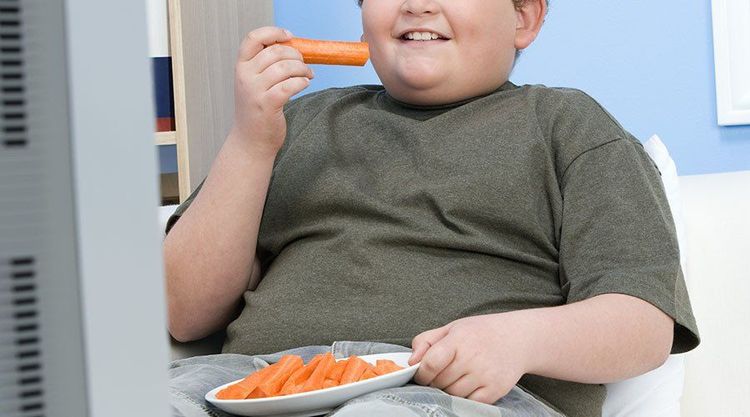
Tình trạng thừa cân ở trẻ cũng có thể làm cho trẻ trở lên thụ động hãy khuyến khích trẻ năng động hơn
Childhood obesity is also linked to an inactive lifestyle. Children today often spend most of their time on television screens, smartphones and computer games.
The solution is for parents to limit the time their children spend in front of the screen and increase physical activity for their children. Encourage your child to participate in at least one regular extracurricular activity, sport or exercise every day. Besides, it is also recommended to do activities with all family members such as walking, camping, traveling...
Determine if your child is at risk of diabetes. role in nonalcoholic fatty liver disease. This hormone is important for regulating blood sugar levels. When fat cells are metabolically inhibited due to high blood sugar, they stop responding to insulin and the pancreas is required to make more insulin. Excess insulin causes more fat to enter the liver cells, leading to nonalcoholic fatty liver disease.
Therefore, it is important to know if your child is at risk for diabetes by regularly checking his or her blood sugar, especially if the child is obese or the parent has diabetes. .
Be careful in taking drugs In addition to the digestive function, the liver is also an organ that metabolizes substances received into the body, including drugs. Some drugs have the potential to cause liver damage if taken in excess.
The most common drug is paracetamol with the use of pain reliever and fever reducer. Present in the common medicine cabinet of every family, this is the first medicine for parents to reduce fever for their children, especially in times of viral infections.
However, reducing fever for children needs to combine with many other measures to be effective, such as wiping cool, taking off some clothes, giving children plenty of water to drink... Arbitrarily taking paracetamol with too high a dose can The goal of fever reduction is not achieved, but there is a risk of acute hepatitis in infants and young children.
Early detection of signs of liver disease in children
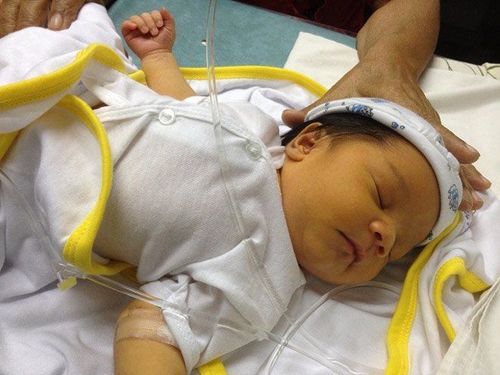
Vàng da là dấu hiệu trẻ đang có vấn đề về gan cha mẹ cần đưa trẻ đi khám sớm.
Liver diseases in children can be diagnosed when parents find out that their child has the following signs and symptoms:
Jaundice Yellow eyes Poor appetite Malnutrition, slow weight gain Full stomach Nausea, vomiting Pain in the right lower quadrant Appears bruises on the skin Pale colored stools Itchy skin Drowsiness, drowsiness At this time, parents need to take their children to a doctor soon for timely intervention by doctors. Blood tests that evaluate liver enzymes and liver function and ultrasound imaging of the liver will help confirm the disease. From there, the child's condition can be improved to normal or maximally preserved if the child has chronic liver disease.
In summary, prevention of liver disease in children has not been paid enough attention while this is also a goal of raising healthy children. Parents need to take appropriate measures to take care of their children, protect their children's liver, and prevent diseases not only for children but also for the health of the whole family.
Currently, Vinmec International General Hospital is providing a general health check-up package for children under 18 years old, with comprehensive examination services, assessment of basic liver and kidney functions, blood sugar, nutritional status Nutrition and hepatitis B virus... Children will be carried out biochemical tests to help measure liver function most accurately, thereby early detecting liver problems of children.
For more information about this health checkup package, please contact the nationwide Vinmec Health System Hotline, or register online HERE.




